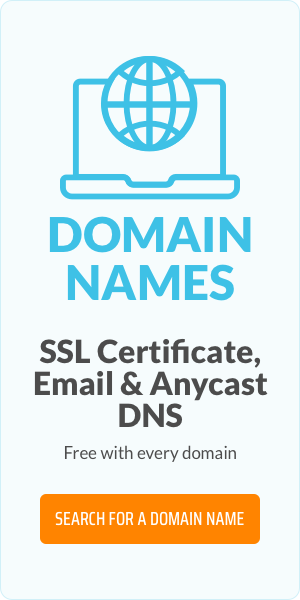Domain name tips for startups and SMBs: we're here to help!

EuroDNS receives enquiries all the time from startups and SMBs needing assistance with domain registration. For the uninitiated, navigating the ins and outs of domain names can seem like a pretty daunting task. So, with that in mind, we’d like to share a few domain name tips customers have found particularly helpful.
1. Is it better to include a keyword or a location in my domain name?
Research your industry’s most important keywords. (The keyword planner in Google Adwords is especially useful.) Learn which words and phrases your target market is using the most. Incorporating these keywords into your domain name will give your SEO strategy a much-needed boost.
Many small businesses have discovered one particularly useful strategy worth considering. They include in their domain the geographical location of their business along with a keyword which speaks to what the business does or offers –organicfood.saarland, for example. (Incidentally, geographic top-level domains like .SAARLAND or .VEGAS can also contribute to a better ranking. Check out this 2015 report on how 2 local domains were shown to increase Google visibility.)
So, in answer to this question, you might consider using both a keyword and your location. But a crucial piece of advice: be careful to avoid creating a long domain packed with keywords. Keyword stuffing will have an adverse effect on your ranking and even turn off your audience.
2. Should I register myself as the owner of my domain name?
Though the answer may seem obvious to some, many small business owners do make the mistake of not registering themselves as the domain name owner, choosing instead to delegate ownership responsibility to a team member.
Problems arise, however, when that team member leaves but is still registered as the owner and administrative contact for the domain name. The process of claiming ownership of your domain name could take years and a lot of money, much more than, say, the €50.00 you spent to acquire the domain in the first place.
Keep in mind: your domain name and website are property. And if you choose not to protect your own property, you are just leaving yourself open to all kinds of legal and financial hassles. If online anonymity is an issue for you, you can always activate domain privacy, a simple and inexpensive way to hide your personal details.
3. How long is too long for a domain name?
Ultimately, long names tend to sound suspicious-– wehavethebestdealsonline.com or totallyinexpensivecomputers.com – and will come across to customers as potential scams by cheap-sounding websites.
While memorable, authoritative-sounding domain names can be hard to come by, a clear, succinct name will sound less suspicious and be easier to remember, share, and even type. (Consider your mobile users.)
Try to find a domain name with keywords that match your brand or products/service since that is what people are most likely to type into their search engine. If your start-up is in the early stages of development, all the better: you can afford to be more flexible, changing the name of your website or brand if need be to match an available domain.
Ultimately, your domain name should relate to your website content and be easy to remember. And don’t lose faith if you cannot find a good .COM! Yes, .COM remains the most popular extension out there but, for that reason, finding a strong, relevant .COM domain can be next to impossible. Don’t overlook the other 800+ domain extensions available for registration.
4. How do I know if I’m infringing on another company’s trademark?
Registering an available domain name that is too similar to an existing company’s trademark can create major legal headaches: cease-and-desist notices, legal threats to shut down your website, fees.
Be careful. Consult http://www.whois.de/to see an up-to-date list of all registered domain names. Another useful option is https://www.domaintools.com/ which provides DNS research tools that may allow you to look up expired domains which have become available and, rather helpfully, the historical records of the WHOIS information for a particular domain.
5. What happens if I forget to renew my domain name registration?
Forgetting to renew your domain name registration can cripple your business, resulting in steep reactivation fees or total loss of the domain name. That’s right: your lapsed renewal will open the door for someone else to buy your name. And if you think this scenario is unlikely, think again. Expired domain names make up a large part of the “aftermarket” industry.
We strongly recommend buying your domain name for extended periods of time up front. Likewise, set up automatic renewal so you never miss your renewal date. But, a word of warning: make sure your default payment method is up-to-date, another common mistake people make which could also lead to losing your domain.
Don’t let all the time and money you've invested in securing the perfect name amount to nothing. Domain name renewal is easy. Just taking a few simple precautions will ensure you don’t run into any problems.
We’re here to help!
We hope you've found these domain name tips useful. But, remember, you can always contact our support team if you have questions. We know that choosing the right domain name for your startup or small business can be an overwhelming task. Let us know what we can do to make the process easier for you.
Become a blogging superstar with these five domain extensions
Related articles:
